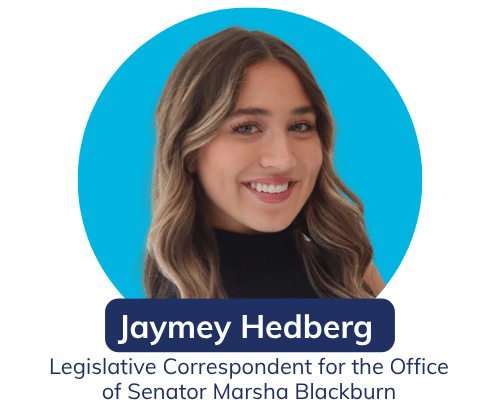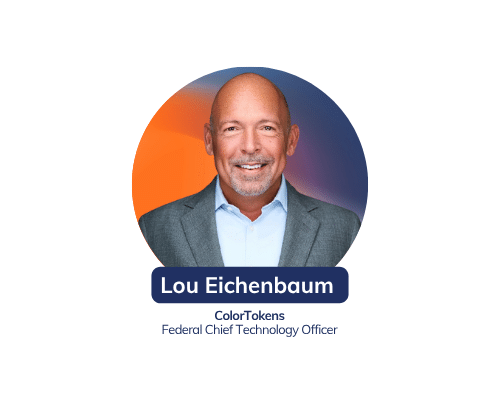I had the opportunity to speak with Chris Rabassi who is currently a small business professional for the Marine Corps Installation East. We were able to sit down and discuss his career history, passion for small businesses and some advice for those who want to work in this space and small businesses who want to work with the DoD!
Takeaways:
- Passion-Driven Career in Logistics and Contracting: Starting in Marine Corps supply, Chris found purpose in supporting troops with essential resources. Over time, he moved around until he landed where he is, and he is now able to help small businesses succeed in the federal contracting space.
- Navigating DoD Regulations for Small Businesses: Working in the DoD’s complex regulatory space requires helping businesses comply with intricate acquisition regulations. Chris can assist these small businesses in finding the right department and understanding eligibility, providing a crucial link between small businesses and DoD opportunities.
- Success through Ownership and Community Engagement: Success in the small business field is rooted in a customer-centric approach, taking ownership of responsibilities, and fostering relationships through active community involvement.

Can you tell me about your career path and how it has led you to where you are now?
I began my career in the Marine Corps in October 1989 and chose to work in supply. While I was drawn to the idea of being a Marine, I gravitated toward supply, influenced by my love for military history and desire to help ensure that people receive the critical resources they needed in the field. For me, being part of the solution was incredibly motivating.
After ten years, I entered an officer commissioning program through the Marine Enlisted Commissioning Education program. This was an amazing opportunity that allowed me to attend college while on active duty. Through this program, I was able to earn my degree in business management from North Carolina State University in 1999. From there, I ended up back at Camp Lejeune.
In the marine corps, you go through officer candid school and then after that you go through the basic school, where you learn the fundamentals. At the basic school you can pick what you want to do; I think I had it easy because I wanted to be a supply officer – and not many other people wanted that. There were times throughout the Global War on Terror where there were more people picking supplies than not. I got commission pre 9/11 – I knew supply well, so I thought why not stick with it. Toward the end of my career, I became a contracting officer.
Once I retired in 2016, I came back as a government service employee. Because of my background, I became a contract specialist, then an officer, and then I became a small business professional in October of 2020. In my current role, I help small businesses navigate the complex requirements to be eligible and competitive for the Department of Defense contracts. I ensure businesses meet eligibility criteria and direct them to the right offices within the DoD.
What do you believe sets the innovation space apart as a unique work environment, and how do you navigate its challenges in your everyday work?
The DoD environment is unique in its layered complexity. Businesses entering this space must comply with extensive federal acquisition regulations in addition to any commercial regulations. When you have a business in the commercial space who wants to come over to the DoD, they still must maintain all those things while also piling on regulations from the DoD side. On our side, we have the DoD federal acquisition regulations, and others that break down by service. So, part of my work is helping businesses understand these requirements and connecting them with the appropriate service or office.
One example I can share is a few weeks ago I got contacted by an advertising company. For context, our office doesn’t every work with advertising – that is done through the Marine Corps Recruiting Command. However, I was able to get that business in touch with the right folks over there. This shows that it is always important to understand where to send people and also always offer a lending hand to those small businesses that reach out to you.
When I think about it being unique, I think back to what I was saying earlier. Everybody doesn’t buy everything. So, the challenge becomes finding out who does have the authority. The DoD recognized that a few years back and created business.defense.gov – which is a great point of entry that businesses can go to find the appropriate service or office within that.
Do you mainly work with North Carolina Small Businesses or is it whoever comes to you?
I work with small businesses all over the country, assisting businesses from around 43 different states this year alone. The marine Corps Installation East covers areas across four states – including North Carolina, Georgia, South Carolina and Florida – our work involves contracts nationwide.
Describe a challenging or rewarding project that significantly influenced your growth as a professional. How did you handle the challenge, and what did you learn from the experience?
Honestly, I find all my work rewarding. Owning a business is such a major life event, so I take a lot of pride in being even a micro part of that process. One project that stands out was developing a structured process for the service contract Requirement Review Board in 2014-2015, while I was with the Second Marine Expeditionary Force. This board ensures that service contracts, particularly those over a million dollars, comply with Federal Acquisition Regulations and are the best approach for each service requirement.
It was important to look at the requirements and ask the questions: is this something active duty should be doing, is this something that is appropriate for a contractor to do, can a reservist come in and do this? Our goal was to give commanders a comprehensive view of contractor roles and evaluate if certain tasks could be fulfilled by active-duty members or reservists, tapping into the often-overlooked talent in the reserves. This holistic review process provided greater visibility into roles and responsibilities ensuring that we deployed sources strategically. Implementing this was complex but rewarding, as it allowed better decision-making at the command level.
Another challenge has been meeting small business participation targets, especially for HUBZone businesses (historically underutilized business zones). HUBZone companies are determined by the SBA using specific economic criteria, they literally take out the map of the US and draws to determine these HUB zones. This year we’ve faced difficulties engaging these businesses, so expanding our outreach is a top priority this year.
How do you find these Small Businesses to work with? Do they always find you or do you also reach out to them?
The Department of Defense did a survey almost four years ago, asking about the barriers to small businesses. One of the biggest barriers they mentioned was just being able for them to talk to somebody. So, I try to be as present as I can in the community and at events.
What has made you successful in your role and what advice would you give to individuals who aspire to work in the innovation space?
The foundation of my success has been rooted in a lesson I learned early on: if you’re responsible for something, you need to own it completely. This translates directly to customer service. I prioritize consistency, ensuring every business I interact with receives the same level of support and clear, fundamental guidance. For instance, although we don’t handle construction-related contracts, I don’t simply turn those companies away. Instead, I connect them with the right people, treating them as I would expect to be treated if I were in their position.
Another key to my success has been staying actively involved in the community. I teach at the Expeditionary Warfare School, working with Marine Corps lieutenants and captains, and I coach and help special operations personnel transition into civilian careers. These experiences have enriched my understanding and skills, shaping my approach to both customer service and mentorship.
My best advice for anyone aspiring to work in this space is to focus on people – connect with and listen to them. Even as someone who’s naturally introverted, I make it a point to attend events and meet people face-to-face, because customer service and relationship-building are central to success in this field. Think of how you would want to be treated if you were the one reaching out and aim to provide that experience for others.
Word Association, what is the first word that comes to mind for each of these?
- Contracting process – Challenging
- Emerging Technology – Interesting
- Small Business – My blood
- Artificial intelligence – Trust with verify
- Policy – Necessary evil
Extra advice!
There are two things I really want to emphasize:
- Historically underutilized business owners – get out there & talk to us!
- Performance is key – I saw this happen a few times this fiscal year – receiving a contract award is not the end. You must perform. The businesses must provide that supply or service within the specifications of the contract. Businesses that don’t perform are putting themselves at risk for termination, which can affect future contracts. You must be eligible; you must be competitive, and then you must perform. Those are all equally important.






